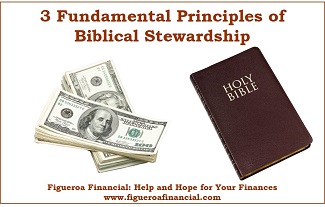 6 Now this I say, he who sows sparingly will also reap sparingly, and he who sows bountifully will also reap bountifully.
6 Now this I say, he who sows sparingly will also reap sparingly, and he who sows bountifully will also reap bountifully.
7 Each one must do just as he has purposed in his heart, not grudgingly or under compulsion, for God loves a cheerful giver.
8 And God is able to make all grace abound to you, so that always having all sufficiency in everything, you may have an abundance for every good deed;
2 Corinthians 9:6-8 (NASB)
As a Christian, what’s your view of stewardship? Does the word bring up feelings of guilt? Or is being a steward a cause of joy for you?
If we are not careful, we can make this concept of stewardship too complicated. I do believe that part of maturing as a Christian involves growing in our understanding of biblical stewardship.
A mature believer understands that he/she is an asset manager or a steward and that God owns it all (Psalm 24:1). He does not need our money.
But I would like to help us understand the essence of biblical stewardship. Let me use the verses above to share with you the 3 fundamental principles of biblical stewardship.
Principle #1: We Reap According to what We Sow
In the context of this passage, the Apostle Paul is encouraging the believers at Corinth to gear up and get ready to support the offering for the saints in Jerusalem (2 Corinthians 9:1-5).
In this first principle, he borrows a concept from farming. Namely, we reap what we sow. Not only that, but we also reap in the same measure as we sow.
The idea here is that in stewardship, you get back as much as you put in. And he is not only talking about a financial return. He is speaking about all of the benefits that come your way when you give.
Jesus put this way: “Give, and it will be given to you. They will pour into your lap a good measure—pressed down, shaken together, and running over.” (Luke 6:38).
You can’t out-give God. He is the Great Giver and He delights in blessing the obedience of His children.
Principle #2: We Should Give with a Joyful Heart
Even though Paul encourages us to give generously, he immediately introduces the second principle.
Yes, we should give but we should do it with a joyful heart. Note that he also indicates that each of us should give as we have purposed in our hearts.
You see, giving is very personal. It’s between you and God and no one else. Yes, He wants you to give and to be a good steward but not under compulsion, out of guilt.
My stepdad worked in construction all of his life. He was usually tinkering around the house doing something: maybe unloading the tools and wood he used after a hard day of work, or maybe working a project around the house during the weekends.
My mom always felt that I should help him, but to be honest, that was not my first inclination. I always had to be told to go help him which I did grudgingly.
However, every time I helped him, I ended up having a good time and learning something in the process. If I had known better, I would have given my time to that effort happily.
In stewardship, you can enjoy it more if you do it from the heart, from the beginning regardless of the amount. You will receive more than you can ever imagine.
Just try it!
Principle #3: We Should Trust God’s Grace in Provision
Here is the fun part in biblical stewardship: once we decide to jump in with both feet, we can trust God will provide what we need for every good deed.
Isn’t that something? God will provide all that you and I need to be a good steward. He is more interested in the condition of our hearts than in anything else. And when we give, we are transformed for the better.
When we obey God in the matter of stewardship, we unlock the power of His grace to work in our lives. We can be a blessing to the rest of the body of Christ and to all who are in need of His love and compassion.
Question: What principle of biblical stewardship will you put in practice today?
“You can’t out give God. Why not try it and see for yourself?”
Greg Laurie, Senior Pastor of Harvest Christian Fellowship
This post is also available in: Spanish
